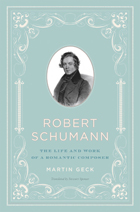3 books about Spencer, Stewart

Beethoven's Symphonies
Nine Approaches to Art and Ideas
Martin Geck
University of Chicago Press, 2017
In the years spanning from 1800 to 1824, Ludwig van Beethoven completed nine symphonies, now considered among the greatest masterpieces of Western music. Yet despite the fact that this time period, located in the wake of the Enlightenment and at the peak of romanticism, was one of rich intellectual exploration and social change, the influence of such threads of thought on Beethoven’s work has until now remained hidden beneath the surface of the notes. Beethoven’s Symphonies presents a fresh look at the great composer’s approach and the ideas that moved him, offering a lively account of the major themes unifying his radically diverse output.
Martin Geck opens the book with an enthralling series of cultural, political, and musical motifs that run throughout the symphonies. A leading theme is Beethoven’s intense intellectual and emotional engagement with the figure of Napoleon, an engagement that survived even Beethoven’s disappointment with Napoleon’s decision to be crowned emperor in 1804. Geck also delves into the unique ways in which Beethoven approached beginnings and finales in his symphonies, as well as his innovative use of particular instruments. He then turns to the individual symphonies, tracing elements—a pitch, a chord, a musical theme—that offer a new way of thinking about each work and will make even the most devoted fans of Beethoven admire the symphonies anew.
Offering refreshingly inventive readings of the work of one of history’s greatest composers, this book shapes a fascinating picture of the symphonies as a cohesive oeuvre and of Beethoven as a master symphonist.
Martin Geck opens the book with an enthralling series of cultural, political, and musical motifs that run throughout the symphonies. A leading theme is Beethoven’s intense intellectual and emotional engagement with the figure of Napoleon, an engagement that survived even Beethoven’s disappointment with Napoleon’s decision to be crowned emperor in 1804. Geck also delves into the unique ways in which Beethoven approached beginnings and finales in his symphonies, as well as his innovative use of particular instruments. He then turns to the individual symphonies, tracing elements—a pitch, a chord, a musical theme—that offer a new way of thinking about each work and will make even the most devoted fans of Beethoven admire the symphonies anew.
Offering refreshingly inventive readings of the work of one of history’s greatest composers, this book shapes a fascinating picture of the symphonies as a cohesive oeuvre and of Beethoven as a master symphonist.
[more]

Richard Wagner
A Life in Music
Martin Geck
University of Chicago Press, 2013
Best known for the challenging four-opera cycle The Ring of the Nibelung, Richard Wagner (1813–83) was a conductor, librettist, theater director, and essayist, in addition to being the composer of some of the most enduring operatic works in history, such as The Flying Dutchman, Tannhäuser, and Tristan and Isolde. Though his influence on the development of European music is indisputable, Wagner was also quite outspoken on the politics and culture of his time. His ideas traveled beyond musical circles into philosophy, literature, theater staging, and the visual arts. To befit such a dynamic figure, acclaimed biographer Martin Geck offers here a Wagner biography unlike any other, one that strikes a unique balance between the technical musical aspects of Wagner’s compositions and his overarching understanding of aesthetics.
Wagner has always inspired passionate admirers as well as numerous detractors, with the result that he has achieved a mythical stature nearly equal to that of the Valkyries and Viking heroes he popularized. There are few, if any, scholars today who know more about Wagner and his legacy than Geck, who builds upon his extensive research and considerable knowledge as one of the editors of the Complete Works to offer a distinctive appraisal of the composer and the operas. Using a wide range of sources, from contemporary scholars to the composer’s own words, Geck explores key ideas in Wagner’s life and works, while always keeping the music in the foreground. Geck discusses not only all the major operas, but also several unfinished operas and even the composer’s early attempts at quasi-Shakespearean drama.
Richard Wagner: A Life in Music is a landmark study of one of music’s most important figures, offering something new to opera enthusiasts, Wagnerians, and anti-Wagnerians alike.
[more]

Robert Schumann
The Life and Work of a Romantic Composer
Martin Geck
University of Chicago Press, 2012
Robert Schumann (1810–56) is one of the most important and representative composers of the Romantic era. Born in Zwickau, Germany, Schumann began piano instruction at age seven and immediately developed a passion for music. When a permanent injury to his hand prevented him from pursuing a career as a touring concert pianist, he turned his energies and talents to composing, writing hundreds of works for piano and voice, as well as four symphonies and an opera. Here acclaimed biographer Martin Geck tells the fascinating story of this multifaceted genius, set in the context of the political and social revolutions of his time.
The image of Schumann the man and the artist that emerges in Geck’s book is complex. Geck shows Schumann to be not only a major composer and music critic—he cofounded and wrote articles for the controversial Neue Zeitschrift für Musik—but also a political activist, the father of eight children, and an addict of mind-altering drugs. Through hard work and determination bordering on the obsessive, Schumann was able to control his demons and channel the tensions that seethed within him into music that mixes the popular and esoteric, resulting in compositions that require the creative engagement of reader and listener.
The more we know about a composer, the more we hear his personality in his music, even if it is above all on the strength of his work that we love and admire him. Martin Geck’s book on Schumann is not just another rehashing of Schumann’s life and works, but an intelligent, personal interpretation of the composer as a musical, literary, and cultural personality.
[more]
READERS
Browse our collection.
PUBLISHERS
See BiblioVault's publisher services.
STUDENT SERVICES
Files for college accessibility offices.
UChicago Accessibility Resources
home | accessibility | search | about | contact us
BiblioVault ® 2001 - 2024
The University of Chicago Press









